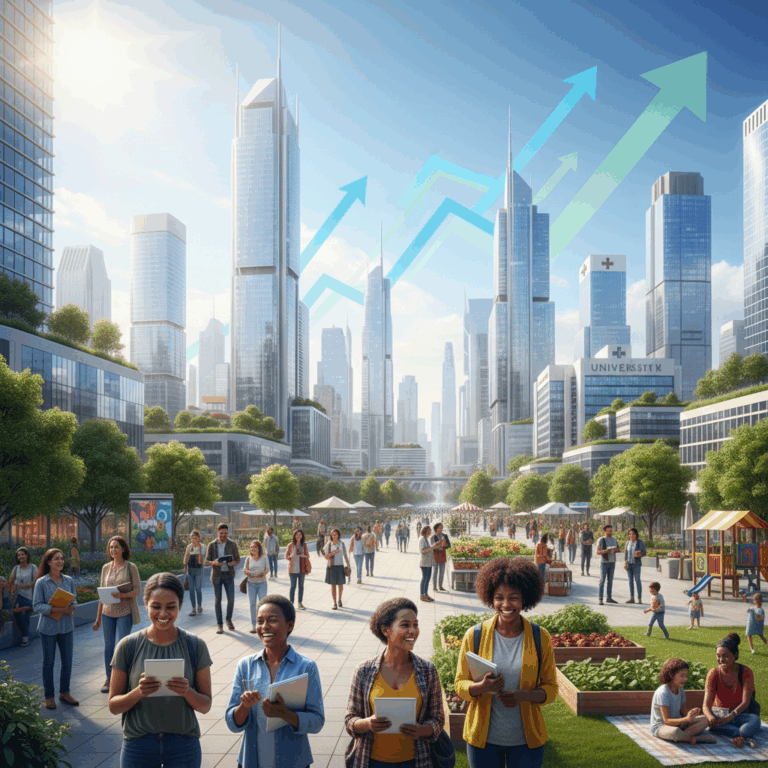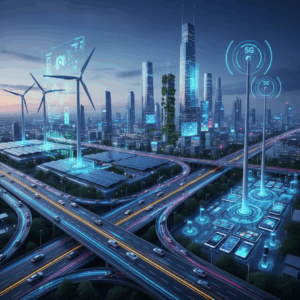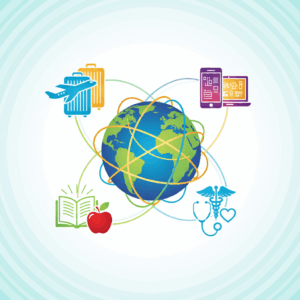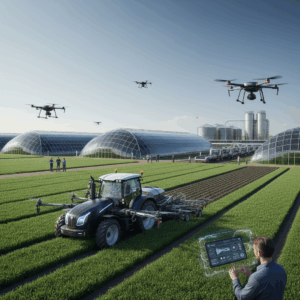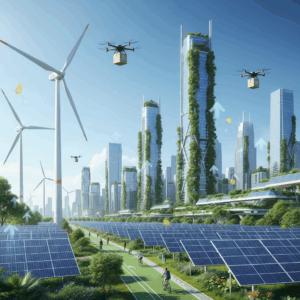Relationship between economic growth and employment
He economic growth It is key to job creation, since increased production leads to a greater demand for labor from companies. This, in turn, drives the generation of new employment opportunities for the population.
When the economy expands, investments and projects multiply, which in turn encourages the hiring of workers in different sectors. Thus, employment increases in both volume and diversity.
The link between economic growth and employment is well documented, demonstrating that the increase in Gross Domestic Product directly influences employment rates and reduces unemployment.
Economic expansion and job creation
The process of economic expansion encourages the creation of new jobs, as companies need to increase their production capacity to meet growing demand.
This creates direct and indirect job opportunities, benefiting both skilled and unskilled workers in various productive sectors.
International studies highlight that in consolidated economies, changes in employment are highly correlated with GDP growth.
Improvements in job quality and stability
In addition to generating employment, economic development drives improvements in the quality of jobs, increasing the proportion of permanent contracts and safer working conditions.
Labor reforms and wage increases contribute to greater stability, social protection and access to benefits, improving the quality of life for workers.
This progress translates into a more inclusive and stable labor market, where employees have greater security and opportunities for professional development.
Impact of economic development on income
Economic development directly drives the increase in income by expanding job opportunities and reducing unemployment, benefiting the majority of the population.
With higher incomes, families increase their purchasing power, which encourages consumption and generates a positive cycle that stimulates sustained economic growth.
Additionally, strengthening infrastructure and public services improves access to essential goods, raising the quality of life and social equity.
Increased employment and reduced unemployment
When the economy grows, more formal jobs are created, allowing people to access regular and stable income, which is essential to reducing unemployment.
This increase in employment reduces inequality gaps and improves the economic security of families, contributing to social stability and community progress.
Economic expansion also stimulates diverse productive sectors, facilitating job relocation and the inclusion of traditionally excluded groups.
Increased purchasing power and consumption
As economic development grows, wages tend to rise, which increases the purchasing power of the population and its ability to buy more goods and services.
This increased consumption stimulates the economy, as it boosts production and investment, generating a virtuous cycle that benefits multiple sectors.
The increase in domestic demand strengthens the local market, contributing to job creation and improved economic conditions.
Strengthening of infrastructure and public services
The increased tax revenues resulting from economic development allow governments to invest in essential infrastructure such as transportation, health, and education.
These investments improve access to quality public services, facilitating social welfare and equal opportunities for the entire population.
Strengthening these areas also promotes a favorable environment for private investment and long-term sustainable development.
Contribution of economic growth to quality of life
He economic growth It goes beyond financial figures, as it improves overall well-being by facilitating access to essential services such as health and education.
This process promotes an increase in life expectancy and security, crucial factors that raise the quality of life of the population in a tangible and sustainable way.
Furthermore, economic development creates an environment that fosters opportunities for personal and social progress, integrating more people into the benefits of growth.
Improvement in well-being and access to services
Sustained economic growth allows governments to increase investment in public services, improving access to and quality of health and education.
These improvements contribute directly to the well-being of the population by providing better healthcare and educational opportunities for all sectors.
Likewise, economic expansion facilitates the creation of infrastructure that supports basic services, which reduces inequalities and promotes social equity.
Social inclusion and personal development
Economic growth fosters social inclusion by creating opportunities for vulnerable groups, promoting participation in the labor market and society.
This has a positive impact on personal development, as people gain access to resources and tools to improve their abilities and quality of life.
Inclusive economic development strengthens social cohesion and promotes a fairer distribution of the benefits of progress, improving the overall quality of life.
Limitations and conditions for full development
He economic growth It is fundamental, but it does not guarantee comprehensive development on its own. Other aspects must be considered to achieve sustainable and equitable progress.
Full development implies a real improvement in the quality of life, social justice and broad access to opportunities, aspects that require actions beyond simply increasing GDP.
To achieve this, it is vital to understand the differences between growth and development, as well as the importance of policies that promote equity and long-term sustainability.
Difference between economic growth and development
Economic growth refers to the quantitative increase in production and wealth in an economy, usually measured by GDP. However, development involves qualitative transformations.
Development encompasses improvements in education, health, social equality and well-being, ensuring that the benefits of growth are distributed fairly among the population.
Thus, a country can experience high growth but lack development if it does not reduce inequalities or improve the living conditions of its citizens.
Importance of equity and sustainability policies
For growth to lead to full development, it is essential to implement policies that promote equity in the distribution of income and opportunities.
Likewise, environmental and social sustainability must be a priority, ensuring that economic progress does not compromise resources and future quality of life.
Relevant fact about sustainable development
The United Nations emphasizes that the Sustainable Development Goals integrate economic growth with social justice and environmental care to achieve inclusive and lasting development.
These goals highlight the need to balance growth with the protection of natural resources and the inclusion of all social sectors, especially the most vulnerable.
